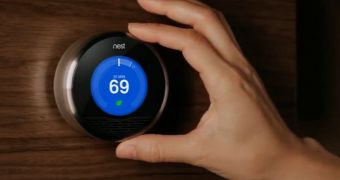Google is shutting down EnergySense and it might just be Nest’s fault.
A few months back, Google was trying to give users a peak at EnergySense, a program that was supposed to help the Internet giant offer home management tools.
Despite the early stages of the project, Google is now ending support and has chosen to close down the web and Android apps that were barely into the test phases, Android Police reports.
Testers were sent an email in which Google informed them that as of March 31, the Energy Sense apps would stop working, although their thermostats would continue to work according to schedule.
“The good news is that you can continue to control your thermostat using ecobee’s web app, Android app, and iOS app,” the EnergySense team wrote.
The program allowed people to create schedules for their compatible thermostats through a web interface, an idea that’s particularly similar to what the Nest thermostat can do.
Now that Google has managed to buy Nest back in mid-January for $3.2 billion (€2.34 billion), it doesn’t really need EnergySense anymore and is dumping the project in order to (most likely) redirect resources to the acquired company.
Of course, Google hasn’t admitted any of this officially and probably never will, but it’s too much of a coincidence to let it pass by.
However, if Google is really serious about getting involved in the home automation and management areas, it really didn’t make sense for it to have two departments handling the same type of project, especially when they are so similar.
Since Google doesn’t do things by half, it’s clear that it has big plans for this particular type of products. The company has been heading steadily towards this area, trying to expand its presence alongside other players.
Google has just introduced Android Wear, a platform specifically developed for wearable devices such as smartwatches. In the presentation clip, one individual commands the device to open a garage door.
This alone shows that the company will most likely try to automate your home and help you control everything from one single control panel. Add in the driverless cars, the near complete control over our online lives thanks to a multitude of tools (search engine, email, cloud storage, etc.) and the robotics projects it’s been developing (that could end up helping us around the house) and you can get a pretty clear picture of Google’s plans for the future.

 14 DAY TRIAL //
14 DAY TRIAL //